Crucial Steps You Can Take to Be Prepared
These are crucial steps that you can take to be prepared for whatever emergency may come your way. If you’re new to prepping, you may feel overwhelmed and unsure of where to begin. That’s nothing to be ashamed of because every prepper, including myself, was at that point at one time or another.
There’s a lot of information, time, and planning that goes into being prepared for emergencies. If you’re feeling lost on all you need to do, I’d be more than happy to help.
Know Which Emergencies to Prepare For
Not knowing what type of emergencies to prepare for would limit your resourcefulness when it matters the most. This could cost you and your family their lives. You need to determine the types of natural disasters and other emergencies that your area is more likely to experience. This will help you with your planning and enable you to understand better which emergency supplies to gather and store correctly.
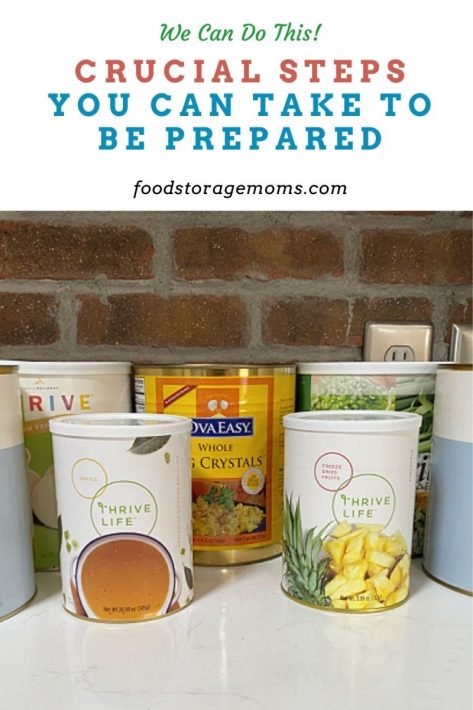
Create a Plan for Your Family
Simply knowing which emergencies to be prepared for is not enough. Take the time to sit down and create a family disaster plan with your family members for each of those most common situations. This means discussing with them and asking questions about what they would do in those moments following a disaster.
Putting your plans in writing and keeping them in a safe place would also be a good idea. It’s also okay if you follow up with your family from time to time by asking “what if” questions. It helps to go through some training practice exercises with family members so you can determine if each member understands their role and what to do in the event of an emergency.
Start Storing Water Now
Drinking water is one of the most essential items you will need following an emergency. When you’re first starting, make it a goal to have at least a two-week supply of drinking water for everyone in your family. To give you a better idea of how much that is, you would need four gallons of water per person, per day, to cover their drinking, cooking, limited laundry, and sanitary purposes. In case you missed this post, Emergency Water Storage-The Basics.
It’s really up to you whether you prefer cases of bottled water, purchasing water in gallon containers, or having larger storage containers you’ve filled. Preppers who take their water storage seriously may opt for 55-gallon barrels for added convenience. You need a pump for those, and I used to have four of them on pallets on the side of my house. When we moved up north, I gave them to my sister.
However, don’t forget that there are 160-gallon and 250-gallon high-capacity tanks, and some are even larger. They typically have two spigots, one for draining and one for filling a bucket. Being able to maintain proper personal sanitation is critical, and it takes some water to do that.
I Recommend these Water Containers:
- WaterBricks
- 7-Gallon Jugs (these CANNOT be stacked when filled)
- Blue Cans (Please note Brownells used to sell this great product. Everything worthwhile is getting harder to purchase)
- Water Preserver
Besides storing the water, you need to make sure it’s clean enough for personal consumption. There are many ways to filter and treat your water. I like the products from Big Berkey and PortaWell. These filtering systems provide a level of purification that you’ll want to protect your family from bacteria in the water. In my archive, I have posts that outline the pros and cons of each system. Do your research before you go out and purchase a water purification solution.
Stock Up on Food
When you’re first starting to build an emergency food pantry as part of your disaster supplies kit, make it a goal to have enough non-perishable food to last you and your family for at least two weeks.
Once that’s been established, proceed and aim to have enough food to feed your family for 2 to 3 months. And then, much longer, my friends. I’m concerned that our current economy is subject to disruption based on the turmoil in the world right now.
You never know if one day you may be dealing with a long-term crisis, and you’ll be glad that you had enough food. However, make sure to stock up on foods that your family likes to eat. For some reason, many preppers appear to disregard this rule and have food stored that family members don’t enjoy. In case you missed this post, How to Store Your Food Storage
Keep a Bug-Out Bag Ready
If an emergency were to happen in your area and you had to evacuate your home quickly, you may not have time to collect everything you need. This is why you should start packing up enough supplies, food, and water now.
You would need to gather enough so that you’d be able to survive for at least 3 days until you found help. If you’re ready to take it to the next level, consider creating a bug-out bag for each family member. Here are some ideas for you: 72-Hour Kits/Bug Out bags
Gather Up All Your Personal Information
Another essential step for you to take is to gather all your personal information that includes copies of important documents, and keep them in a safe place that everyone in your family is aware of. Some families keep all their information in a binder, but I encourage you to get a small safe that’s both fireproof and waterproof.
Losing all this information in a house fire or flood can be a significant setback, making it harder for you to recover and move forward with your life.
You’ll need to have each of your family members’ birth certificates, social security cards, identification, passports, insurance and medical information, legal documents, titles, and an inventory of all of your home’s valuables. But it doesn’t end there. Here are some additional critical documents that you may need in case of an emergency. In case you missed this post: Free Download Emergency Binder Contents.
Start an Emergency Fund
When an emergency catches you off guard and you don’t have some money set aside, many people resort to pulling out the credit card(s) in those situations. Yet this is something that you don’t necessarily have to do if you’re financially prepared for an emergency.
Instead of falling into more debt in the future, consider starting an emergency fund today that can help you cover unexpected expenses. It doesn’t have to be a very large amount, and you don’t have to come up with it overnight. Set a target of somewhere between $1,000 and $3,000 as a starting point.
Keep Progressing with Your Food and Water Storage
Even though you may have several months’ worth of food and water stocked up for every kind of emergency at this point, it’s essential to keep diligently adding to your stockpile and rotating the inventory to keep the supplies as fresh and usable as possible. This may take you a long time to do, and that’s okay.
You can do it slowly by throwing in a few extra cans of food in your grocery cart every time you visit the grocery store. But you also have to remember that even non-perishable foods won’t last forever. Be sure that your family develops a sound rotation system so that you use those foods before they expire and replenish them accordingly, ensuring a stable or growing inventory over time.
Say Goodbye to Debt
Having a lot of debt takes away the freedom to make purchases of items that you need most, while also preventing you from being able to help others around you. It can take its toll on a relationship, making it harder for two people to come together in agreement, especially when it comes to purchasing emergency supplies.
Getting out of debt doesn’t require rocket science. Instead, it takes time and a conscious effort on your part. You need to create a budget and stick to it. Doing so will allow you to save money and allocate more funds towards paying off debt. This also means that you’ll have to stop spending money on things you don’t necessarily need, and refrain from spending money that you don’t have.
Some Items to Consider When Starting Out
We all have to start somewhere. The list of items to have in your emergency kit BEFORE disaster strikes can be extensive. Here are some items to consider as you put your plans together:
- Flashlights and Lanterns: Be sure to have extra batteries for your battery-operated items. I like to use solar-powered units, and I keep a bunch on window sills being charged.
- Shelter Materials: You may have to leave your home for a few hours or days. Have some plastic sheeting and some duct tape to help you put something together.
- Garbage Bags: We have a variety of bags available. You’ll not only have regular garbage to dispose of, but you MAY have to deal with human waste, so sturdy bags are a must.
- Personal Sanitation Items: you’ll want hand sanitizer, soap products for hands, body, dishes, and clothes. You’ll also want hygiene items for the ladies in the house. Having wipes and moist towelettes for you and your infant is important. That infant will also need diapers and formula. Having enough toilet paper is always an issue, and it’s a product that is the first to go at the store.
- Communication Options: This could be a lengthy discussion. I like to have a hand-crank radio available in case the power goes out. I want to hear those emergency alerts. If your radio is a NOAA weather radio, all the better. Walkie-talkies are great for short-distance communication. Have your cell phone chargers ready to go with the necessary cables.
- A First Aid Kit: I hope all my readers have a well-stocked kit. It should have the usual bandages, gauze, ointments, scissors, tweezers, latex gloves, and more. But it should also include over-the-counter medications and prescription medications.
- Change of Clothing: Have an extra set of clothes for each family member. Be sure to have plenty of socks and some sturdy shoes. Having warm blankets is also important.
What If We Have to Evacuate Our Home?
There is a good possibility you’ll have to evacuate. There needs to be a family evacuation plan and a variety of options for where to meet. Families are busy these days, and any family member could be found at school, the gym, at church, or at work when an emergency strikes. Consider these locations and how best to get the family back together safely. There needs to be various evacuation routes since roads and bridges may be washed away, like we’ve seen in Texas this week. Have some local maps to refer to as part of your evacuation plans; you don’t want to get lost or find yourself in a dangerous location.
Final Word
There are more than just a few steps that need to be taken so that your family is prepared for an emergency. They involve careful planning, time, money, and sacrifice. A few of them may even require a different way of thinking on your part. Can you think of any other crucial steps that individuals can take to prepare for an emergency? Feel free to leave a comment down below. May God bless this world, Linda

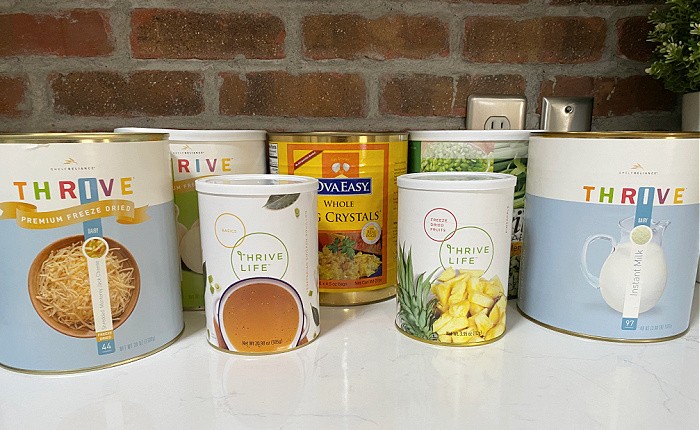


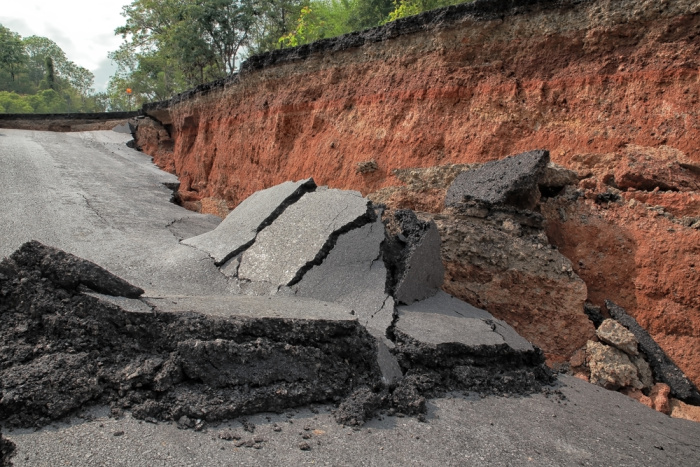


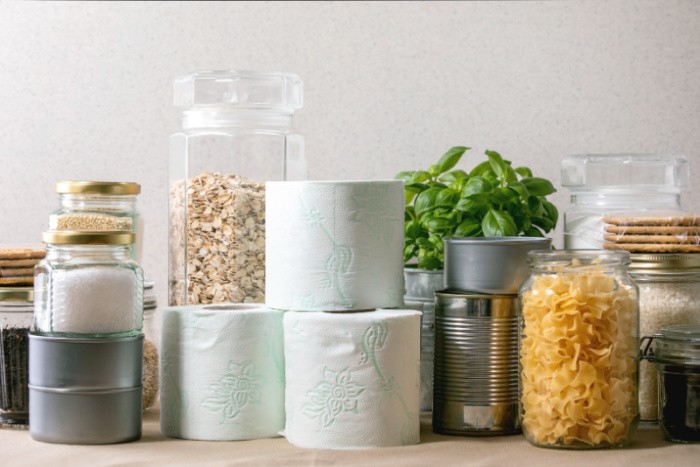
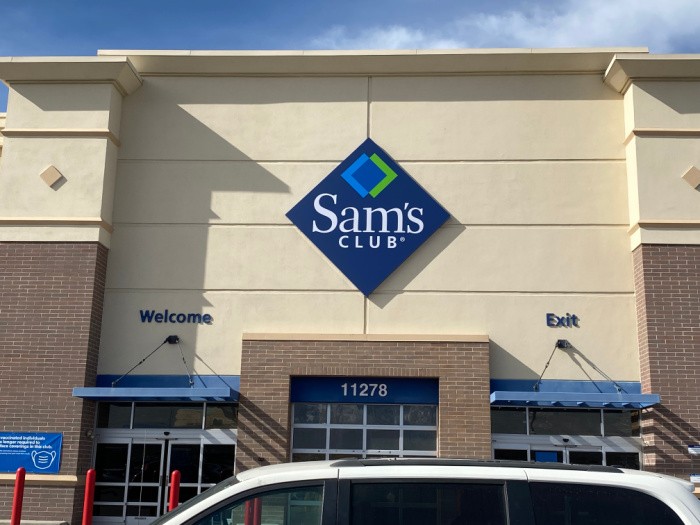

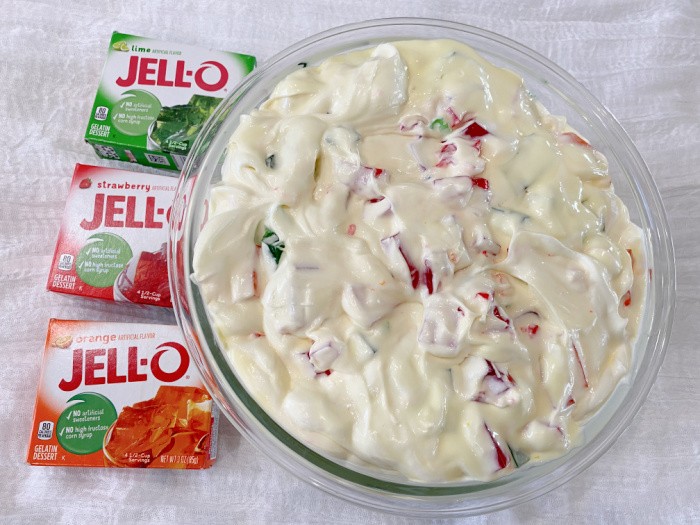


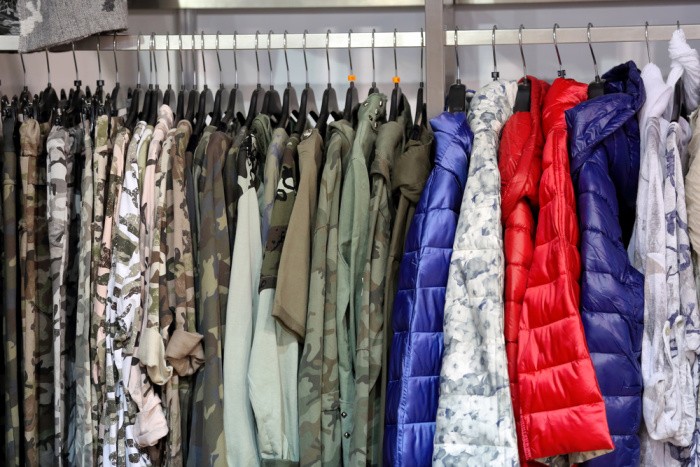
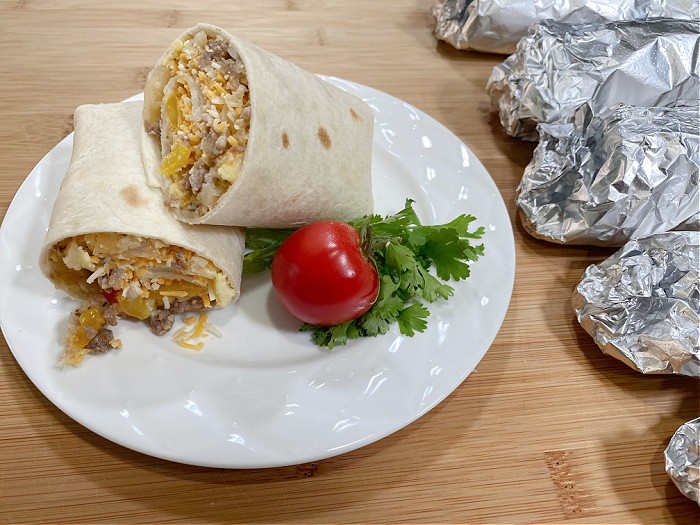
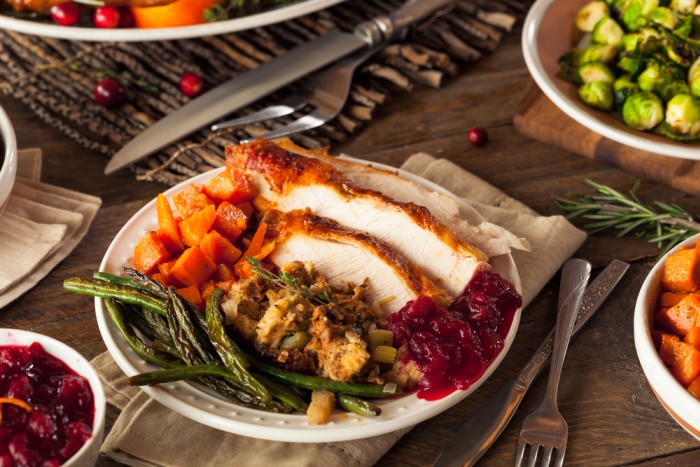




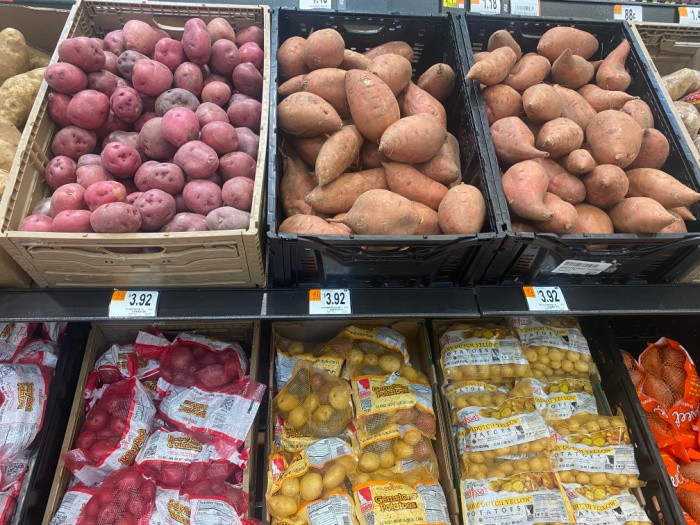

Linda, another great post! I’ve been buying up dried beans and rice. We love both. I’m also stocking up on dried soup mixes. And dehydrating meat and vacuum packing it. I can never be prepared enough. There’s always something more that needs to be done.
Hi Deborah, I totally agree. I love soup mixes! I’m working on another soup mix in a jar today. I could eat soup every day! Linda
I could eat soup every day too. Or salads or anything like these. Easy and filling.
YAY! Absolutely love your soup mix in a jar posts!
Hi Amy, aww, you are so nice, I’m editing the images and getting ready to put the instructions in the post. It’s Pasta Fagioli, it’s so good, stay tuned. Linda
I like your idea about dried soup mixes especially since I went to Good Seasons Salad dressing after Four bottles of salad dressing expired. Do you have a brand you would recommend?
Not really. I just buy what I like at our local grocery store. I have dehydrated frozen vegetables and made soup wit them. For fresh veggies, I blanch before I dehydrate, then after dehydrated, I add some powdered tomatoes and seasonings. I place the seasoning and tomato powder in a small bag and add the veggies and dehydrated meats if using. And vacuum seal either in a jar or a bag. You can also use beans and make a mix too.
A lot of folks focus on the tactical side of the house mainly because it gets the most attention from friends. You need to be able to protect what you have however you have to have something to protect.
Balance In All Things
Water is easy and cheap. No excuses just get to it.
Food less so and becoming less so by the day which is why that’s where your main focus should be. If all you can afford is a can of corn this payday then so be it. You made progress.
No one will stand around giving you congratulations for it for two reasons: First it’s not as “cool” to your buddies and Second you shouldn’t be telling anyone.
You will have to look inwards for self gratification. That’s not something down often in our world.
Please don’t be overwhelmed by it all and just eat that steak one bite at a time.
Hi Matt, great comment as always. You are the real deal! There really are no excuses for not storing water, it’s cheap! Just do a step at a time, as you said, one can of corn, great, that’s one more can of corn than you had last week. My motto is one can a week, we can do it! Linda
Matt ~
I agree about the self-gratification!! I always feel so much more secure when I see what I have stored and how well prepared (I think) I am!!
I just went back and read your November 2020 post on “How to store your food storage” Great post! Is Thrive the best freeze dried food source? And can you tell me where you got the container labels? Thanks!
Hi Kay, the labels are vinyl lettering, my daughter used to sell them until people could make their own with a Cricut machine. I used to buy Thrive Life, I should say, I still do but very little. The prices are way too expensive right now. In fact, they are ridiculous. I set up an account so I can get it cheaper by buying $50.00 or so per month. If you spend $100.00 each month you get free shipping. Here’s the deal, I’m glad I bought it years and years ago. I would not pay the prices they have today, especially for the meat. I will become a vegetarian before I pay those prices. Thank you for your kind words, my friend. Linda
I think we have well-rounded food storage, but I am always looking to fill in the cracks. We have lots of spices stored. If I end up eating rice and beans, I don’t want it to taste exactly the same on day 1,000 as on day one.
Water is very important, but since we have 2 wells, we concentrate on getting it to the surface and purifying. We also keep 5 gallons containers for our water cooler. They get rotated regularly.
Hi Janet, oh I love hearing you have 2 wells. I understand you have to have a way to get it to the surface and then purify it. You know before we had reverse osmosis installed we had those 5-gallon containers for years. They are a great way to store water and rotating them is easy. Great comment, Linda
For folks who eat meat & use animal products, I hope you’re paying close attention to the food supply chain!
JBS – probably the world’s largest meat supplier was “hacked.”
Tin foil hat me says this is likely another manufactured crisis, but I digress.
Reports are going mainstream to expect “meat shortages.”
I was shopping at Aldi grocery store today, & saw there were purchase limits on chicken, beef, & canned tuna.
I’m in southeastern Pennsylvania. My friend who lives on the gulf coast of Florida also went shopping today & saw limits at her grocery store too.
Hi Amy, I bet we have matching tinfoil hats!! LOL! I’ve been gearing up for the meat shortage. I have worked with a Cyberattack Warfare guy who has written two books. Plan Bravo 1 & 2. I just ordered the 2nd one. I’m more worried about a power grid outage and so is he. I sent him an email because he keeps telling me we will be targeted on the 3 power grids. It’s not is but when. It’s starting….Be ready. We have one of the JBS meat packers in northern Utah. It’s the real deal. I have heard they will be up and running today, I hope to hear on the news. I bought a lot of bacon at Costco (probably more than my share) but Mark and I eat BLT’s all summer with fresh tomatoes. You know you can freeze bacon, right? Stay safe, Linda
Ohmygoodness, love BLT’s with those garden fresh tomatoes! Yes, we do freeze bacon when we find a good deal. It’s so easy to fit in the freezer too, love it!
I’ve thought quite a bit about an attack on our power grid as well. It IS coming & my gosh…it’s almost unfathomable.
Honestly, I’m not a “paranoid” person, but these days it makes me nervous traveling more than a couple hours away from home. Even when going to our cabin I’m thinking….what would be the best route back home if I had to walk, ride a bike or horse? How long would it take? Etc etc.
Those thoughts probably sound looney to most people lol!
That is REALLY cool you’ve worked with a Cyberattack Warfare guy, wow! I’d love to read his books.
And you have a JBS meat packers nearby, hopefully you’re able to stay on top of the scoop with that one!
Hi Amy. well the JBS meatpacker is in Logan, Utah which is about 400 miles away. I saw something on the news where people were walking out to their cars because the communication was down. I had heard they had hoped everything would be back up and running today. No updates as of now. You know, Amy, you are not alone, whether I go to a grocery store, a movie theater, or a restaurant. I look for exits, it’s just me and I would say I’m NOT paranoid, but I want a plan if I have to exit quickly. I can see why you are thinking about your cabin and getting home, I think every prepared person thinks about it. We may not say it out loud but we are thinking about it. We have to because things are crazy and will only get worse. Hank Brown, the Cyberattack Warfare specialist explained to me one very important tip. IF you are say standing in line at the grocery store and SEVERAL people around you mention their cell phones do not work, it’s no coincidence, GET HOME ASAP. Don’t talk about it, just get home. He has trained his kids to get home if this happens. They all have bikes. AND they have calculated how long it would take to get home from college and jobs. Interesting, right? It’s an attack most likely. Stay safe, Linda
I’m not paranoid either, but I’ve been expecting our power grid to go out for a while now. Not IF, but When. It will either be an attack on the grid or an EMP or something unforeseen. I’ve been prepping for it, and whatever is thrown at us.
I haven’t seen any limits on meats here in East Texas though. Nor limits on anything. The shelves are mostly full. The ones that are empty or near empty are the ones withe big sales. We have two freezers full of meat items. I learned a lot from 2020 and the empty shelves then. I’m stocking up on whatever we use. I do have th I need to make laundry soap that I use all the time. I will be buying up more. I use either Fels Naptha soap or Ivory soap, Washing Soda, and Twenty Mule Team Borax. I also use some Oxy Clean and a scent booster. This last time I didn’t use the scent booster. It works perfectly.
Hi Deborah, we have prepared we can handle what comes our way. I have a 5-gallon bucket of that detergent. It took a while to make it. But I have it when needed. I can add the scent booster as I use it. It’s so cheap to make. We all learned a lot last year! So Many crazy things are happening, another cyberattack this morning on some ferries back east. Are these tests for the real thing? We will never know. Stay safe, Linda
Amy, correction, I am not paranoid, I left out the NOT. Linda
Linda, I think the cyber attacks are exercises to see what we’ll do, if anything. It’s scary, but we need to learn from this. We need to learn that we can only depend on ourselves.
Hi Deborah, I totally agree with your on the cyber-attacks being an exercise of sorts. Let’s hope people are prepared for what is coming. Covid spurred a little on but, I’m not sure everyone really sees the need to be prepared. God help us all. Linda
Linda, which post has your DIY laundry detergent instructions? Thank you!
I thought that I was prepared not only for larger emergencies but also for small ones, like a short term power outage. My daughter called this morning to tell her tale of her dryer stopping work when she was drying diapers. She said that she had clothesline but no clothes pins. I realized that I am in the same situation.. I’ll stop by the Dollar Tree later today or tomorrow and fix that problem.
I keep my food stored based on recipes. I have a collection of 15 to 20 recipes and keep what I need to make them all together in a basket. The baskets are labeled (with a copy of the recipe in the basket) and on a shelf. Some of them are recipes that we make all the time, like spaghetti. I have the spices I need to add to the tomato sauce to make spaghetti sauce in a baggie, then the tomato sauce and canned items for rest of the things. Then I have a pound package of spaghetti i the basket. I have enough ingredients to make the sauce 4 times. If necessary, we can eat it without meat. Each of the baskets are set up the same with everything, including spices, to make the meal. I keep enough ingredients to make between 1 and 6 times for each recipe, depending on how we like it and how many cans of ingredients there are.
I’m worried about meat and the food chain. I’m trying to talk my husband into buying a quarter cow, some lamb, and half a pig. We would need a 2nd chest freezer in the food storage room and he doesn’t want that. We are in an area where it is easy to buy directly from the farmer if we do this. The other thing I want to learn to do is can meat to have on hand. We are finishing a kitchen remodel which included switching from an electric stove to a gas stove, which makes it easier to can. Last year you couldn’t find canning jars anywhere, so I’m hoping that the jars will make reappearances at yard sales this summer.
I’m also planning to buy a dehydrator and learning to use it to dehydrate meat and veggies. Plus soups. I found several backpacking websites that have directions to dehydrate all sorts of things. We will then package these in mylar bags. We can also use these meals during our camping trips.
I have some freeze dried foods from Thrive and other places that I can use once we run out of things or items we use frequently. I like their beef and chicken powdered bouillion. They are vegetarian based and that makes it easy to package it up when making my meal baskets. We also use the Thrive gravy mixes. We have the freeze dried veggies and meats for times when we can’t get fresh.
Hi Angela, you have a great plan going, I applaud your diligence. You will be so grateful to have a gas stove. I switched out my electric one that came with my house and had to wait for a gas line for 3 months. I used my butane stove and Sun oven during that time. They worked great. I gave my stove to my daughter, so it was gone. I like your basket idea with meals, I used bags when I taught classes how to make them. Meals in bags ready to go. We are using up our meat in the freezer and will not be buying more. Except for bacon for BLT’s. I can see the writing on the wall about meat prices, I will not cave to them. You are lucky you have a meat farmer, that is a blessing. I learned to can meat in my Master Canning Preserving class. I have been canning for over 50 years but had never done meat. It’s so easy and I have pressured canned and water bath canned for 50 years. It’s very easy and simple to do. I worry about the canning supplies as well, they seem to be coming back so that’s good to hear. Having a wide variety of food storage is what I love to hear! You will survive, you understand the need to be prepared in many ways. Good job, Linda
Great post, Linda.
When I was first getting started and set up my clothes washing buckets (3 5 gallon buckets, a plunger, biodegradable soap, clothes line and clothes pins) I made sure I had everything to do laundry. I focused on that alone at the time.
I have a 5 gallon porta-potti that uses either the liquid or powdered sanitizer typically used in RVs or the Double Duty bags that are a ziplock type bag with a heavy black garbage bag attached with the powder already in the bags. I have some of both types – bags and RV stuff. I have several rolls of TP in the bucket as well. Again, I focused on that alone.
I also did a focus on cooking: made sure I had a heat source, choosing a butane one burner stove and have quite a lot of butane stored. I also have 3 dutch ovens – 12 inch, 10 inch and 8 inch along with other cast iron pots for cooking. All work well on the butane stove or over an open fire as well as with charcoal for baking needs. My “cook box” is filled with other cooking needs – knives, forks, spoons, butcher knives, etc.
I wanted to make sure that I had all I needed to cover specific needs. When I was concentrating on food storage, I purchased some long term freeze dried foods from Thrive Life as well as some samples from other companies who offed samples. I decided it was then best for me to go with a “store what I eat and eat what I store” method and have been more than happy with this method for myself.
As for water storage, living in an apartment does not lend itself to massive quantities of water storage. I have some stored and if I hear of a storm coming through (mostly in the winter) I fill pots/pans and the bath tub for cleaning purposes and flushing the toilet. Water is the thing I am most concerned about though. I also have a Berky water filter, a Berky sport bottle with a filter, a couple of Life Straws and a “water bin” that I have filtering cloths in along with hose (for the 55 gallon water heater) bucket and other things I think will be needed if I have to use surface water.
The biggest thing Covid-19 lockdowns taught me was “holes”!! What holes did I have in my preps? I really made concerted efforts to fill those holes. After over a year, I am feeling pretty confident that I have most of the holes filled for basic emergencies. For a long-term emergency like an EMP or other grid failure, who knows. I think I will be good for 6-8 months but then again, who knows???
Hi Leanne, I need to check on those Double Duty Bags with a zip lock bag with the powder in them. Those sound awesome. My favorite freeze-dried food is Thrive Life. Thank goodness you and I bought several years ago, I choked at the prices the other day. I do not recommend buying freeze-dried #10 cans any longer until the prices come down. You will do fine with your knowledge, supplies, and skills. I’m concerned about the three cyberattacks, it’s just the beginning. Our country is so vulnerable. Our infrastructure is so antiquated, it’s ridiculous. I too am feeling confident with my preps, I have what I have and will continue to rotate my food. Life is good if we can sleep at night. Stay safe, stay healthy. Linda